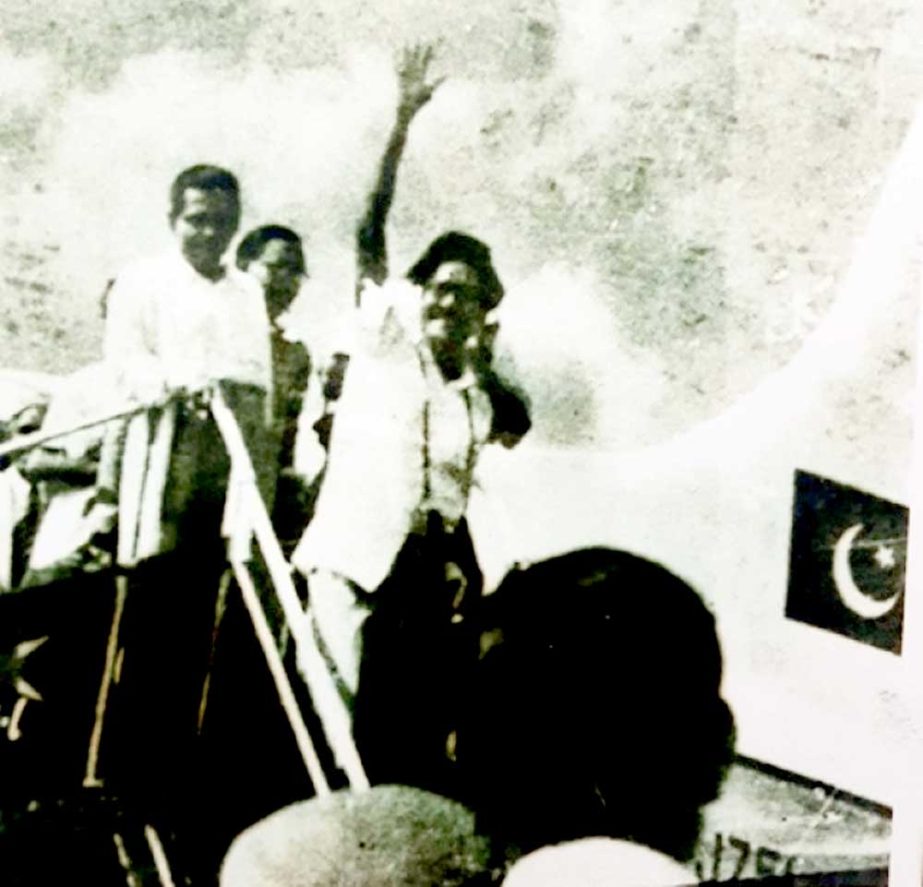
ATM Nurun Nabi :
Lord Francis William once said, the press is a weapon of freedom, a sword in the hands of those fighting old and new tyrannies – the one indispensable weapon in the armoury of freedom.
If freedom of press is curved and the flow of information is hindered, misleading news is manufactured. For example, a leading daily of the United Kingdom in 1962 published a report that the angry mob set a port in Dhaka city to ablaze during the anti-Ayub movement. But the interesting matter is that, there was no (and still not) sea port in Dhaka.
However, during that political upheaval in the then East Pakistan, some courageous journalists tried their hard to uphold journalism with a sense of dignity and honesty. Tofazzal Hossain (Manik Mia) was certainly the man who led the true journalism in that period amid huge government pressure and political instability.
Freedom of press was Manik Mia’s dream. He fought for it throughout his life. He said, newspaper, which does not reflect public opinion, must die. In one of the meetings held in Rajshahi, he said that a newspaper, which ignored people’s interest, was sure to die. Every newspaper must have a clear-cut goal of keeping the nation informed of what was going on.
He was uncompromising in his journey to the freedom of press. He made a great contribution to building the public opinion in favour of the historic 6 — point movement launched by Bangabandhu Sheikh Mujibur Rahman, which ultimately witnessed the emergence of independent Bangladesh in 1971.
Manik Mia was the founder-Editor of the Daink Ittefaq. His two famous columns were Rangamancha and Rajnaitik Mancha through which he tried to correct the mistakes the Muslim League leaders were making. His pen name was Musafir.
Manik Mia protested the economic disparity between the two wings of Pakistan and warned that it would eventually weaken the integrity of Pakistan. He strongly advocated for the execution of Lahore Resolution. According to the said resolution, there were supposed to be two sovereign Muslim States in the eastern and the western parts of India with the Muslim majority regions.
His writings were so powerful that the civil and the military bureaucrats of the then central and the provincial governments imprisoned him on several occasions. He was first arrested on September 20 in 1959 under Military Act 24. This Act provided 14 years jail to the accused. He knew it. Yet, he did not bend down his head.
At that time, editor of a leading English daily of Karachi met him in the jail and requested him to compromise some parts of his ideals, but to no purpose. The then ruling party gave him a very lucrative offer in order to refrain him from practising objective journalism but failed because he was a man of different character.
Manik Mia supported Hussein Shahid Suhrawardy in his efforts to establish a democratic government in Pakistan. He arrived in Dhaka in 1949, losing everything in Calcutta. After his arrival, he received a letter from the central government appointing him as Deputy Secretary (information). After discussion with Bangabandhu Sheikh Mujibur Rahman, he decided not to join it in the greater interest of the nation.
He was arrested again on June 26 in 1966 for his all out supports to the historic six-point movement. Political philosopher and renewed writer Abul Mansur Ahmed once said that not only Awami League, the whole nation and the whole country were indebted to Tofazzal Hossain Manik Mia.
Manik Mia was not a politician, but a statesman. He was convinced that the Muslim League leaders were defrauding the people in the name of religion. Many a time, Manik Mia reminded them of the dire consequences thereof with advice to refrain from exploiting the people of the then East Pakistan. He said that economic exploitation of one nation by another within a country was not a good sign. It had ultimately very bad effects.
However, in the 1970 general election, Awami League emerged as the largest political party in the country. But the civil and the military bureaucrats of the then West Pakistan refused to accept Bangabandhu Sheikh Mujibur Rahman as the Prime Minister of Pakistan. They could not understand that they were making blunder.
He had very good relationship with Bangabandhu Sheikh Mujibur Rahman, architect of Bangladesh, although the two differed on many issues. They were in jail together though arrested separately for the same goal of ending exploitation.
He unlike many journalists of today did not hanker after power and wealth. It was easy for him to lead a luxurious life. The government of Pakistan banned the publication of Ittefaq on several occasions, but he was unmoved.
He was a devoted journalist and taught others how to prepare reports and write editorials. He looked after their welfare and helped them in distress.
About editorial, he said, knowledge and experience are the two qualities of an editorial-writer. He must know what he is writing and how far he can go. He must be aware of his limitation also because editorial writing is a technical matter. He outright rejected editorials without objective.
In fine, Maink Mia was a courageous journalist. Though he led a simple life, he did not break down in hardship. He said, Ittefaq is a vanguard against oppression and will never retreat from the said mission.
Tofazzal Hossain (Manik Mia), a great warrior in the field of democracy, died in his 58 years in a hotel in Rawalpindi, Pakistan on June 1 in 1969. Sadly nowadays, courageous journalists like Manik Mia are rare.
(The writer is a senior journalist).

